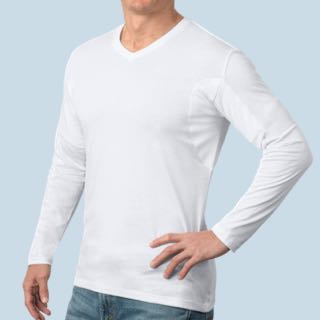Understanding Hot Flashes & How to Deal With Them
Hot flashes are the most common symptom of menopause – but what are they, exactly? Although many know the term, few women know what it feels like until it happens to them. And, even then, it frequently goes undiagnosed and untreated.
In this blog, we’ll define hot flashes and cover their causes and remedies so that you can learn how to manage them effortlessly.
What Are Hot Flashes?
Hot flashes are sudden feelings of intense heat in the face, neck and upper body that can last anywhere from 30 seconds to several minutes. Common symptoms include raised body temperature, red or blotchy skin, rapid heartbeat, sweating and anxiety.
Hot flashes that occur at night are referred to as night sweats, which can disrupt sleep patterns and make it difficult to get enough rest.
What Causes Hot Flashes?
Hot flashes are the hallmark symptom of perimenopause (the transitional time around menopause) and menopause. According to the North American Menopause Society, as many as 75% of North American women experience hot flashes during this time. The exact cause is uncertain, but it is thought to be attributed to changes in the hypothalamus, the part of the brain that controls the body’s temperature. A decrease in estrogen levels may also be to blame.
Although hot flashes most commonly occur alongside menopause, they can also be caused by obesity, spicy foods, anxiety, hormone conditions, endocrine imbalances and high blood pressure. Some prescription medications, like opioids, antidepressants and osteoporosis drugs, can also cause hot flashes.
Because there are several causes for hot flashes, the age at which they begin varies. Menopause-related hot flashes typically begin in a woman’s late 40s to early 50s. However, hot flashes that are not related to menopause can occur at any point in a person’s life if a trigger (like anxiety) appears.
What Does a Hot Flash Feel Like?
The severity of hot flashes varies from person to person. For some, it simply causes a moment of slight discomfort; for others, it can create a significant barrier to their lifestyle and trigger several undesirable side effects.
Those with mild hot flashes commonly feel a sensation of heat without sweating. People who describe their hot flashes as moderate typically experience a sensation of heat accompanied by sweating. Severe hot flashes trigger a sensation of heat and excessive sweating so drastic that it becomes difficult to continue an activity.
Popular Remedies for Hot Flashes
Although hot flashes can be uncomfortable, you don’t have to grin and bear it. Here are some tried and tested remedies for managing hot flashes:
Dress in Layers
Sweating during a hot flash can be a significant cause of discomfort. However, it can also leave sweat marks on your clothes, leaving you feeling anxious or even embarrassed.
Wearing a protective undershirt can soak up excess sweat, cool down your body and eliminate sweat stains. Thompson Tee’s sweat proof undershirts absorb moisture, prevent underarm sweat and manage odor, leaving you feeling comfortable and confident all day long. And, they’re form-fitting and blend seamlessly underneath your clothes, so they’ll go unnoticeable by others.
Use a Portable Fan
If you find yourself needing an immediate solution to a severe hot flash, carry a small, portable fan with you. While this won’t stop the frequency of hot flashes, it can ease their symptoms and help cool you down in case of an emergency.
Exercise Regularly
Although intense exercise raises internal body temperature, gentle movement has been proposed as a mechanism to decrease the severity of hot flashes. This is because exercise increases endorphins and supports healthy hormone levels.
Watch What You Eat
Certain foods naturally increase body temperature, signaling to our body that it must sweat to cool down. Here’s a list of foods that may worsen hot flash symptoms when eaten in large amounts:
- Spicy foods, like hot peppers.
- Processed foods, like frozen meals, deep-fried snacks and fast food.
- Salty food, like cured meats, chips and canned foods.
- High-sugar foods, like candy, cake and cookies.
Read more: 10 Foods to Decrease Excessive Sweating
Avoid Alcohol and Caffeine
Alcohol and caffeine have a similar effect on the body to the foods listed above. Both alcohol and caffeine widen your blood vessels, which increases blood flow to the skin and creates a sensation of warmth. If you’re prone to hot flashes, try to avoid beverages containing these substances.
Meditate
Anxiety-induced hot flashes are quite common. Luckily, there are several ways to reduce (and even eliminate) the symptoms of these types of hot flashes – meditation being one of them.
The benefits of meditation are extensive, one of which is reduced anxiety. Simply sitting down for five minutes and breathing deeply is enough to calm the nervous system, lower blood pressure and slow our thoughts. So, the next time you feel a hot flash coming on, close your eyes for a moment and focus on your breath – the results might surprise you!
Breathing Exercises
Like meditation, mindful breathing has a calming effect on the nervous system and, as a result, can ease the symptoms of hot flashes. We recommend trying the 4-7-8 breathing method. Breathe in for 4 counts, hold for 7 counts and exhale for 8 counts.
Take Herbal Supplements
There are several herbal supplements that have been scientifically proven to ease the side effects of hot flashes. Here are a few that are commonly recommended:
- Black cohosh. Black cohosh is a woodland herb that naturally eases hot flashes, night sweats, heart palpitations, sleep disturbances, nervousness, irritability and more. It’s one of the most popular supplements recommended for those experiencing hot flashes.
- Red clover. Red clover is commonly used to treat respiratory issues, skin disorders, inflammatory conditions and hormonal imbalances. There are several studies that prove that it subdues hot flash symptoms.
- Ginseng. Ginseng is a root that has been used for centuries in Chinese medicine. It is commonly used for its antioxidant properties, but it is also proven to decrease heart rate and blood pressure. In turn, it can help the body manage the sweat that comes alongside a hot flash.
- Kava. Kava is a natural depressant that slows the messages being sent between the brain and the body, leading to a decrease in feelings of anxiety. Subsequently, it can decrease the severity of hot flashes.
*Be sure to check with your doctor prior to taking any of these supplements.
Hormone Replacement Therapy (HRT)
Hormone replacement therapy (also known as HRT) is a medication that is frequently prescribed to women experiencing menopause-related hormone imbalances. It can ease the symptoms of hot flashes, night sweats, mood swings, lowered libido and more. However, as with all hormone therapies, it does come with a list of possible side effects, including blood clots and breast cancer. Talk to your doctor to find out if hormone replacement therapy is right for you.
Soak Up Hot Flash Sweats With a Thompson Tee
Hot flashes can be an instant day ruiner.
Thompson Tee’s patented sweat proof technology has helped countless women manage hot flash symptoms and achieve comfort and confidence. Our shirts absorb underarm sweat, keeping you cool and allowing you to live a life free of discomfort.
Ditch sweatiness and discomfort and try a Thompson Tee risk-free today!


